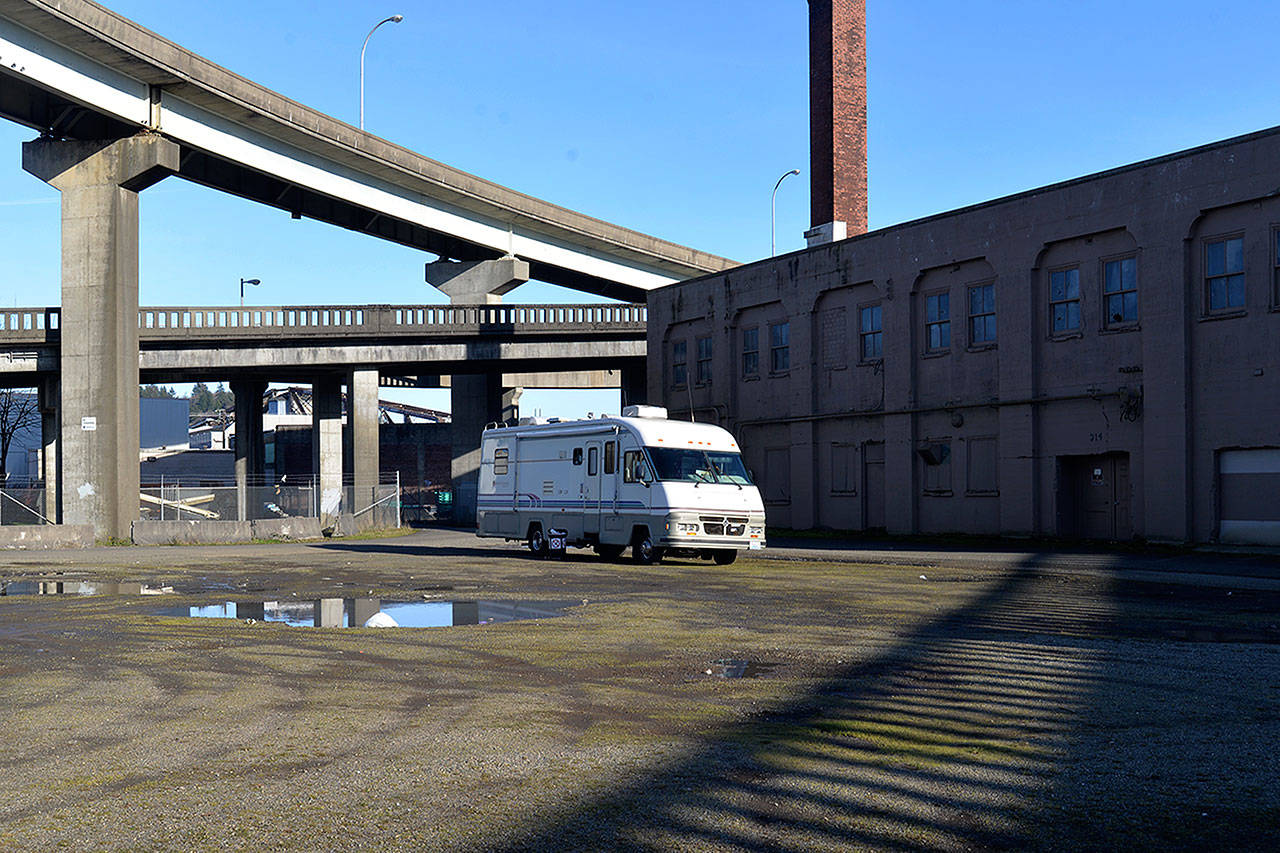A private, non-profit agency that offers mental health and substance abuse services has notified county officials it plans to pick up the syringe exchange program when the county’s involvement in it ends April 1.
In a letter to Grays Harbor Public Health Social Services Manager Cassie Lentz, dated March 1, Willapa Behavioral Health interim CEO Salina Mecham wrote:
“It is Willapa Behavioral Health’s intention to take over a portion of the Grays Harbor syringe services program effective April 1, 2021. We will be transitioning into the role of providing the services of collecting, exchanging, and disposing of the needles as well as offering information on services to recovery.”
The Grays Harbor County Board of Health, made up of the three county commissioners, voted 2-1 in January to end the county’s involvement with the program effective April 1.
In the letter, Mecham said Willapa Behavioral Health — which has offices in Montesano, Raymond and Long Beach — plans to make it a mobile service that will move to designated locations in the county with its own van and supplies.
“We understand that Grays Harbor County Public Health and Social Services will continue to provide screening for HIV and Hep C testing as well as Naloxone for participants in the program,” read Mecham’s letter.
County Commissioner Vickie Raines, was the one Board of Health vote for Grays Harbor to retain its long time syringe exchange. “Our program is ending and they are starting their program,” she said. “They’re just going to take over where we left off.”
Raines said she first heard of Willapa Behavioral Health’s intention to take on the program last week. It was a topic of discussion at a commissioners workshop Tuesday.
Newly elected commissioners Kevin Pine and Jill Warne ran on a platform last year that included ending the syringe exchange in the county. Pine said he had expected a private entity to come in to continue the program once the county’s involvement with it ended.
“The county is out of the business of giving out any kind of needles or any other paraphernalia, we’re just out of that business,” said Pine, saying that had been one of his major goals since taking office this year.
At the workshop, “The one question I had was, what if the mayor and community says, we don’t want it?” said Pine. “We were told (at the workshop) it’s coming and it is what it is.”
Mecham said that locations depend on a number of factors, including whether the “community that is surrounding it will tolerate it,” and if Willapa Behavioral Health’s outreach is good enough that people feel comfortable having it around. She said a couple of different entities have expressed interest in providing a location but would not divulge specifics as nothing has been officially decided location-wise.
Since it is a private entity planning to take over the exchange program, and the funding for their services is not connected in any way to the county, the commissioners have no direct say in Willapa Behavioral Health’s plan to operate the program.
A number of prominent members of the medical and public health community strongly opposed the Board of Health’s decision to drop the service, saying it saved lives and prevented disease. Opponents of the program said it just made it easier for addicts to use drugs.
“What do the citizens have to say?” asked Pine. “I’m a public servant and that’s what I want to know. They elected Jill Warne and myself primarily on this platform, or one of the primary platforms, and we need more public discussion.”
He said he was told at the workshop that it was only “the five percenters,” a small portion of the community, that were speaking loudly in opposition to the program itself. “I’d like to know if that’s accurate. I don’t believe it is,” said Pine. He said the commission was told at the workshop that, “It’s already in your community, and it’s going to continue being in the community.” He stressed the need for more public discussion as to where it can operate and said the public should have a say as to whether they want it in their communities or not.
Raines said she had “moved on” since the Board of Health voted to end the program.
“The only thing I’d like to see is us to continue to provide (Naloxone) to our law enforcement and jails,” she said. Naloxone is a medication designed to rapidly reverse opioid overdose.
Public health plans to continue its Naloxone and training, with a full-time employee and supplies paid for by a University of Washington grant, and provide “linkages to care” — a full time employee paid for by a state Department of Health and CDC grant to provide treatment referrals and identify barriers to and factors of successful rehabilitation — once Willapa Behavioral Health takes over. Lentz said she’s already had written confirmation that funding for Naloxone and outreach activities can continue with modifications to current grant contracts language.
At Tuesday’s workshop, public health said it has developed a communication plan, reaching out to grant funders to confirm it can still meet contract deliverables and the funding and agreements already in place can continue. It will work with Willapa Behavioral Health to communicate the next steps to its clients, which Lentz said involved speaking to existing exchange clients and keeping them informed as to the changes in service. Willapa Behavioral Health itself will reach out to “relevant community partners” to communicate the specifics of the syringe exchange program, which have not yet been finalized.


